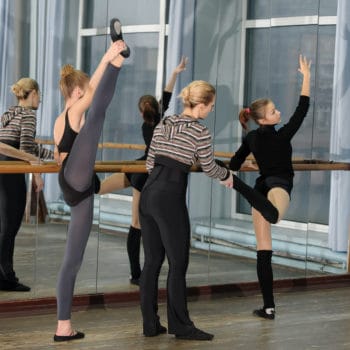Why We Love It
-
$80,490Potential Avg. Salary
-
5.8%Job Growth Rate
-
Growing DemandJob Outlook
-
Get to TravelCareer Attribute
Professional athletes take part in competitive, highly organized and officiated sporting events designed primarily to entertain an audience.
Recommended Schools
What is a Professional Athlete?
Professional athletes must be focused, dedicated individuals with tremendous physical dexterity, hand-eye coordination and reflexes who have a high tolerance for stressful working conditions and immense occupational pressure. Overall, compensation is slightly above average compared to the national median income, however the most successful individuals in the profession consistently achieve a significantly higher annual wage. Despite the fierce competition for jobs and the physically rigorous nature of the work, job satisfaction is rated highly.
Professional athletes typically do the following in the course of their work:
- Follow carefully calibrated exercise and dietary regiments in order to stay in peak physical and mental condition
- Frequently practice with teammates, various staff and alone in order to improve and/or maintain skill level
- Work closely with coaching staff, medical team and various team administrators regarding tactics and strategy, both in game and year round
- Study past performance and competitors to assess strengths and weaknesses
The dream of becoming a professional athlete is common, but only a small percentage are able to join a crowded and hyper-competitive field and earn a living. Alongside the challenge of becoming a professional athlete is the difficulty of maintaining a position, as professional athletes tend to suffer significantly shorter careers than most due to heightened risk of injury and fierce competition and receive little to no long-term employment security.
Sports are enormously popular and as such there are a sizable number of events in which athletes compete, including but not limited to team sports such as baseball, football, basketball, soccer, hockey and individual sports such as tennis, golf, bowling, cycling or bull rider, to name but a few. The most recognizable part of an athlete’s professional life is during the event in question, however direct competition in events comprises only a fraction of the time spent during workday.
Pro athletes train and practice constantly to maintain fitness and ready themselves for competition. This is often done under the supervision of a coach or team-designated instructor. Fitness is essential to excel in the field and reduce the likelihood for injury, a potentially catastrophic event that can result in replacement or forced retirement and prematurely end a career.
Job security is scarce and competition at every level of professional ports is fierce, and as such, athletes tend to work long hours to maintain their position. A large number of pro athletes are subject to extensive travel requirements, which may mean long bus or airplane trips. International travel is not uncommon at the highest levels. As such, professional athletes rarely work a normal forty hour 9-5 Monday through Friday work week. Nights, weekends and holidays are often included in the demands of the job.
JOB GROWTH
Professional athletes can expect a similar rate of growth as compared to other occupations over the next ten years, a result of population increase and ever-present demand from the public for sporting competition.
The competition for employment, either in a full-time or sporadic way, will also remain highly competitive. In a top-level sport such as football, approximately 2% of college players will ever earn a paycheck from performing on the field as professionals.
Additionally, the vast majority of professional athletes, irrespective of the particular sport in question, are unable to maintain peak performance for more than a few years. This can create opportunities to enter the market, but it limits the earning potential over a lifetime severely.
Recommended Schools
How To Become a Professional Athlete
There is no minimum educational requirement or formal credentials necessary to become a professional athlete, though a high school diploma or its equivalent is typical for those in the field.
There is no direct path to becoming a professional athlete, however pro athletes tend to rise to their position through exceptional talent and a thorough knowledge of their sport, its rules, intricacies and strategies. Skills are usually developed over many years by playing the sport at lower levels of competition, such as high school and collegiate athletics or amateur club teams.
Professional athletes are occasionally required to be licensed or certified to participate in their sport. For example, race car drivers must be granted a license in order to participate in certain events. Licenses are granted (and can also be revoked) by the governing body of the sport in question.
Attaining a position as a professional athlete is arguably the greatest level of advancement possible in a career. In certain sports, such as baseball, there are tiers of competitive play, utilized to garner experience and cultivate skills, ultimately proving superior ability to reach the major leagues. Upon reaching the highest level of competition within a given sport, advancement is difficult, though earnings can increase exponentially with superior performance or through cultivating a brand and receiving endorsements from companies.
It should be noted that a majority of professional athletes are required to pass drug tests.
Professional Athlete Salary Data
We’ve provided you the following to learn more about this career. The salary and growth data on this page comes from recently published Bureau of Labor Statistics data while the recommendations and editorial content are based on our research.
National Anual Salary
Low Range
$28,400Average
$80,490High Range
---National Hourly Wage
Low Range
---Average
---High Range
---How do Professional Athlete salaries stack up to other jobs across the country? Based on the latest jobs data nationwide, Professional Athlete's can make an average annual salary of $80,490, or --- per hour. On the lower end, they can make $28,400 or --- per hour, perhaps when just starting out or based on the state you live in.
Salary Rankings And Facts
#135 Nationally for All Careers
Above Average Salary Nationally
Highest Education Among Professional Athletes
- 2.2% Doctorate
- 14.2% Masters
- 42.7% Bachelors
- 7.9% Associates
- 21.5% College
- 9.8% High School
- 1.7% Less than High School
Job Growth Projections and Forecast
2014 Total Jobs
13,7002024 Est. Jobs
14,500Job Growth Rate
5.8%Est. New Jobs
800How does Professional Athlete job growth stack up to other jobs across the country? By 2024, there will be a change of 800 jobs for a total of 14,500 people employed in the career nationwide. This is a 5.8% change in growth over the next ten years, giving the career a growth rate nationwide of Above Average.
Growth Rankings And Facts
#389 Nationally for All Careers
Above Avg. Growth Nationally
What Companies Employ The Most Professional Athletes
| Industry | Current Jobs | New Jobs Needed | % Increase |
|---|---|---|---|
| Spectator sports | 8,300 | 400 | 0% |
| Self-employed workers | 1,700 | 100 | 0% |
| Fitness and recreational sports centers | 700 | --- | 0% |













